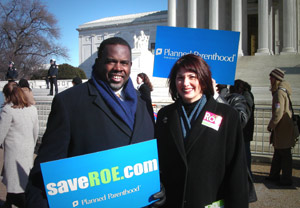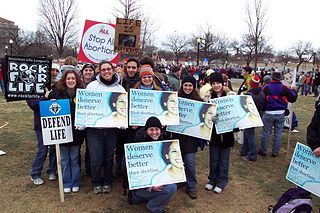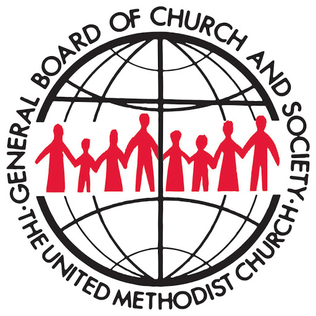Methodism, also called the Methodist movement, is a Protestant Christian tradition whose origins, doctrine and practice derive from the life and teachings of John Wesley. George Whitefield and John's brother Charles Wesley were also significant early leaders in the movement. They were named Methodists for "the methodical way in which they carried out their Christian faith". Methodism originated as a revival movement within Anglicanism originating out of the Church of England in the 18th century and became a separate denomination after Wesley's death. The movement spread throughout the British Empire, the United States and beyond because of vigorous missionary work, and today has about 80 million adherents worldwide.
The United Methodist Church (UMC) is a worldwide mainline Protestant denomination based in the United States, and a major part of Methodism. In the 19th century, its main predecessor, the Methodist Episcopal Church, was a leader in evangelicalism. The present denomination was founded in 1968 in Dallas, Texas, by union of the Methodist Church and the Evangelical United Brethren Church. The UMC traces its roots back to the revival movement of John and Charles Wesley in England, as well as the Great Awakening in the United States. As such, the church's theological orientation is decidedly Wesleyan. It embraces liturgical worship, holiness, and evangelical elements.
Roe v. Wade, 410 U.S. 113 (1973), was a landmark decision of the U.S. Supreme Court in which the Court ruled that the Constitution of the United States generally protected a right to have an abortion. The decision struck down many abortion laws, and caused an ongoing abortion debate in the United States about whether, or to what extent, abortion should be legal, who should decide the legality of abortion, and what the role of moral and religious views in the political sphere should be. The decision also shaped debate concerning which methods the Supreme Court should use in constitutional adjudication. The Supreme Court reversed the Roe decision in June 2022, ending the constitutional right to abortion.

The United States abortion-rights movement is a sociopolitical movement in the United States supporting the view that a woman should have the legal right to an elective abortion, meaning the right to terminate her pregnancy, and is part of a broader global abortion-rights movement. The movement consists of a variety of organizations, with no single centralized decision-making body.
The Confessing Movement is a largely lay-led theologically conservative Christian movement that opposes the influence of theological liberalism and theological progressivism currently within several mainline Protestant denominations and seeks to return them to its view of orthodox doctrine, or form a new denomination and disfellowship (excommunicate) them if the situation becomes untenable. Those who eventually deem dealing with theological liberalism and theological progressivism within their churches and denominations as not being tenable anymore would later join or start Confessional Churches and/or Evangelical Churches that continue with the traditions of their respective denominations and maintaining orthodox doctrine while being ecclesiastically separate from the Mainline Protestant denominations.
The Methodist Federation for Social Action (MFSA) is an independent network of United Methodist clergy and laity working for justice in the areas of peace, poverty, and people's rights since 1907.

The United Statesanti-abortion movement is a movement in the United States that opposes induced abortion and advocates for the protection of fetal life. Advocates support legal prohibition or restriction on ethical, moral, or religious grounds, arguing that human life begins at conception and that the human zygote, embryo or fetus is a person and therefore has a right to life. The anti-abortion movement includes a variety of organizations, with no single centralized decision-making body. There are diverse arguments and rationales for the anti-abortion stance. Some allow for some permissible abortions, including therapeutic abortions, in exceptional circumstances such as incest, rape, severe fetal defects, or when the woman's health is at risk.
The Religious Coalition for Reproductive Choice (RCRC) is an abortion rights organization founded in 1973 by clergy and lay leaders from mainline denominations and faith traditions to create an interfaith organization following Roe v. Wade, the 1973 U.S. Supreme Court decision legalizing abortion in the U.S. In 1993, the original name – the Religious Coalition for Abortion Rights (RCAR) – was changed to the Religious Coalition for Reproductive Choice.

The General Board of Church and Society (GBCS) is a general agency of the United Methodist Church. It is one of four international general program boards of The United Methodist Church as set out the UMC Book of Discipline. The General Board has headquarters on Capitol Hill in Washington, D.C., and at the Interchurch Center in New York City. There are five divisions within the GBCS: Public Witness and Advocacy, Administration, Ministry of Resourcing Congregational Life, United Nations Ministry and Communications.

Catholics for Choice (CFC) is a non-profit organization based in Washington, D.C. that represents Catholic people who support reproductive freedom and advocates for abortion rights, Formed in 1973 as Catholics for a Free Choice, the group gained notice after its 1984 advertisement in The New York Times challenging Church teachings on abortion led to Church disciplinary pressure against some of the priests and nuns who signed it. It has lobbied nationally and internationally for abortion rights goals and led an unsuccessful effort to downgrade the Holy See's status in the United Nations. CFC was led for 25 years by Frances Kissling and is currently led by its President Jamie L. Manson.

The March for Life is an annual rally and march against the practice and legality of abortion, held in Washington, D.C., either on or around the anniversary of Roe v. Wade, a decision legalizing abortion nationwide which was issued in 1973 by the United States Supreme Court. The participants in the march have advocated the overturning of Roe v. Wade, which happened at the end of the case Dobbs v. Jackson Women's Health Organization on June 24, 2022. It is a major gathering of the anti-abortion movement in the United States and it is organized by the March for Life Education and Defense Fund.

Christianity and abortion have a long and complex history. There is no direct reference to abortion in the Bible, nor any explicit condemnation of abortion. The lack of discussion of abortion in Christian scripture has led to varied and divergent stances on the moral acceptability of abortion across Christian denominations and among Christians. Today, Christian denominations hold widely variant stances.
Robert Leonard Schenck is an American Evangelical clergyman who has ministered to elected and appointed officials in Washington, D.C. and serves as president of a non-profit organization named for Dietrich Bonhoeffer. Schenck founded the organization Faith and Action in 1995 and led it until 2018. He is the subject of the Emmy Award-winning 2016 Abigail Disney documentary, The Armor of Light. Schenck stated that he was part of a group that paid Norma McCorvey to lie that she had changed her mind and turned against abortion. Once a prominent anti-abortion activist, Schenck has since repudiated this work and expressed support for the legality of abortion. In 2022, Schenck testified before the House Judiciary Committee concerning his allegation that a member of the Supreme Court leaked information about a pending case before the Court.
The Catholic Church and abortion in the United States deals with the views and activities of the Catholic Church in the United States in relation to the abortion debate. The Catholic Church opposes abortion and has campaigned against abortion in the United States, both saying that it is immoral and making statements and taking actions in opposition to its classification as legal.
United Women in Faith is the only official organization for women within The United Methodist Church (UMC). In 2022, United Methodist Women began doing business as United Women in Faith (UWFaith). Founded in 1869, the organization now has nearly half a million members. UWFaith offers all Methodist women opportunities for spiritual growth, leadership development, transformative education and service and advocacy. Its current advocacy priorities are climate justice and racial justice, including ending criminalization of communities of color and mass incarceration.
The Clergy Consultation Service on Abortion (CCS) was a group of American clergy that counseled and referred people to licensed doctors for safe abortions before the Supreme Court's decision in Roe v. Wade made abortion legal nationwide. Started in 1967 by a group of 21 Protestant ministers and Jewish rabbis in New York City, the group operated out of Judson Memorial Church and grew to incorporate chapters in thirty-eight states with some 3,000 clergy as members. By the time of the Roe v. Wade decision in 1973, it is estimated that the Clergy Consultation Service had nationally referred at least 450,000 people for safe abortions. The Clergy Consultation Service also started Women's Services, an abortion clinic in New York City, in 1970 after statewide legislation made abortion legal in New York State.
The Global Methodist Church is a Methodist denomination within Protestant Christianity subscribing to views that were propounded by the conservative Confessing Movement. The denomination is headquartered in the United States and has a presence internationally. The Global Methodist Church was created as a result of a schism with the United Methodist Church, after members departed to create a denomination seeking to uphold "theological and ethical Christian orthodoxy." Congregations that left the UMC to form the Global Methodist Church opposed recognition of same-sex marriage and the ordination of non-celibate gay clergy. Its doctrines, which are aligned with Wesleyan-Arminian theology, are contained in the Transitional Book of Doctrines and Discipline, its Book of Discipline, and in The Catechism of the Global Methodist Church. The church allows both women and men to serve as clergy. As of 2024, the church is composed of nearly 4,500 congregations and a similar number of pastors.
The Liberation Methodist Connexion is a Protestant denomination based in the United States drawing from Methodism and liberation theology. Formed in 2020 as a progressive offshoot of the United Methodist Church, the LMX includes Methodists and non-Methodists alike and encourages continued collaboration with the UMC. Organizers of the Liberation Methodist Connexion announced on 18 December 2021 that no progress has been made to set up a separate denomination.
Howard Russell Moody was an American clergyman who served as a pastor at Judson Memorial Church in New York City for 35 years. He was also a longtime champion of civil rights and free expression.






